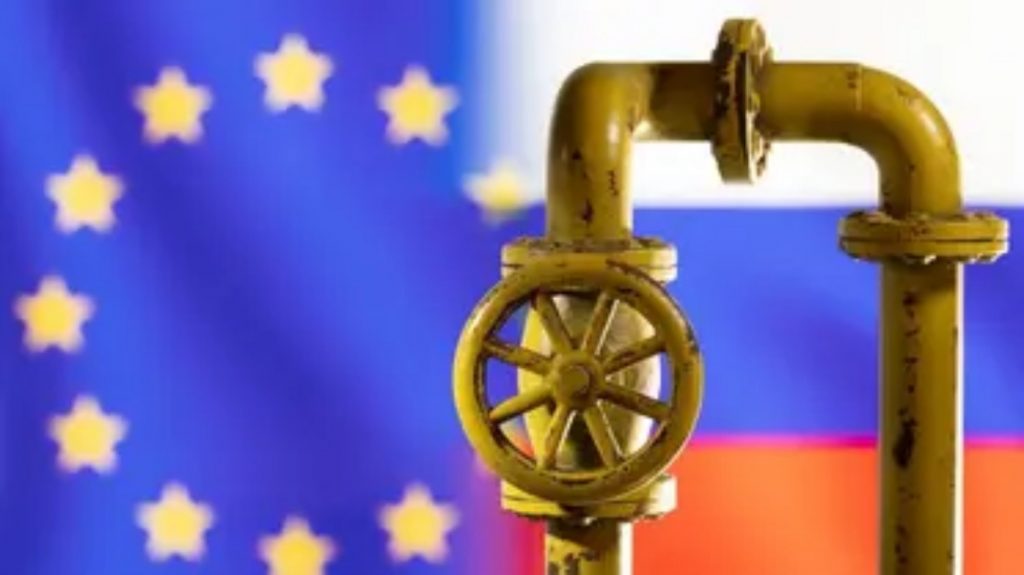The latest developments in the field of Russian gas supplies to Europe offer all the prerequisites to assert that the Kremlin is preparing an impending energy catastrophe for the EU. Its beginning will coincide with the onset of cold weather and will be used by Putin as an instrument of political blackmail against the backdrop of a systemic weakening of the European economy and related socio-political problems of Brussels. Russia is carefully and thoroughly preparing a gas «Trojan horse» for the EU, capable of splitting and fragmenting the European geopolitical monolith in the future. Finding ways out of the current energy crisis is a matter of survival for Europe in its current form.
A series of military failures at the front, which gave the Russian-Ukrainian war a long, sluggish character, forced Russia to invent new levers of pressure on the EU in order to stop its support for Ukraine. After 5 months into the war, Putin seems to have grasped the true state of affairs — the cumbersome, hulking Russian army, equipped with dwindling, archaic Soviet weapons, is bogged down in heavy, grueling fighting in eastern Ukraine, causing unprecedented losses of young, healthy men against a backdrop of dynamic demographic catastrophe developing in Russia, and rapidly depleting the Russian economy. Even the limited supply of Western weapons for the Armed Forces of Ukraine proved its complete advantage over outdated Soviet counterparts. That is why Putin is beginning to use Russian energy weapons for the sake of inflicting complex damage to Europe. Thus, Gazprom announced that from July 27 it will stop the operation of another turbine of the Nord Stream 1 gas pipeline, reducing the volume of gas pumped to the EU to 20% of the planned capacity. According to the corporation’s management, this step is dictated by the need for overhaul and maintenance of the Portovaya compressor station. It should be noted that as a result of the announced reduction in gas supplies, Germany, which is the leading EU economy, will suffer the most. Putin is trying to destroy the EU economy, which is the guarantor of the stable existence of this supranational association. A number of international information publishers, in particular El Pais, Reuters, have already published articles predicting a possible split and subsequent political chaos in Europe.
The Kremlin’s logic in terms of the aggravation of the energy crisis in the EU is quite simple and consistent — unscheduled “repairs” will be announced, accidents on gas pipelines (of course, Ukraine will be blamed of it), and other emergency situations, as a result of which the volume of Russian gas transported to Europe can be reduced to zero. The EU energy destabilization plan is personally supervised by Putin, who on July 20, during a visit to Iran, said that only the launch of Nord Stream 2, which was stopped before the start of the Russian-Ukrainian war, could guarantee uninterrupted supplies of Russian gas to Europe. These words are a transparent hint to Europe that it is possible to get Russian gas only in exchange for the lifting of sanctions and the termination of support for Ukraine.
Articles on topic:
- Why is Russia ready to sacrifice O. Scholz for its own interests?
- Oleg Nikolaenko, spokesperson for the Ministry of Foreign Affairs of Ukraine, answered questions from Cyprus Daily News
- Lavrov Confirms that Russia Will Not Stop at Ukraine
But Russian gas accounts for only 40% of the EU’s total natural gas consumption. And this is a strong advantage for Europe. The main task for Brussels is to find alternative supplies of this energy raw material and fill gas storage facilities before the cold weather. Otherwise, Russian gas blackmail will turn into direct dictate this fall against the backdrop of a systemic crisis in the EU and an unprecedented flow of refugees from the Middle East and Africa. РRussia cannot a priori be considered a reliable partner fulfilling its obligations. Only its complete isolation and the gradual rejection of Russian raw materials can save the situation.
Now Europe is facing the most dangerous challenges since the end of the Second World War, and the integrity of the EU depends on their correct neutralization. Russia is launching a new phase of hybrid threats that hit directly on Europe, but they can still be effectively countered.

